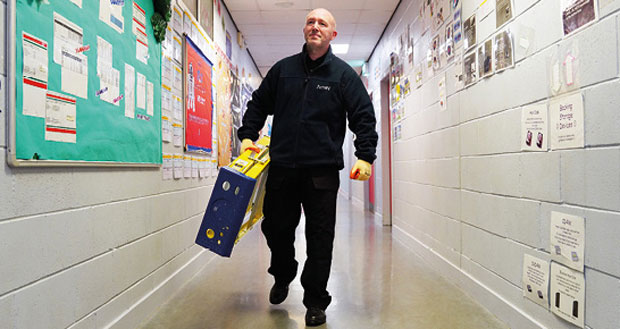 Amey’s People Director Stephanie Johnson describes a raft of recruitment and training strategies that aim to bring back the long term unemployed to the workforce
Amey’s People Director Stephanie Johnson describes a raft of recruitment and training strategies that aim to bring back the long term unemployed to the workforce
The UK workforce has been changing dramatically over the last few years as a result of post-Brexit changes to immigration and the impact of the COVID pandemic in increasing the number of those with long-term illnesses.
The latest figures show the greatest contributor to economic inactivity is by those suffering from long-term sickness, rising from around two million at the start of 2019 to two and a half million by January 2023.
Understanding these trends and putting in place strategies to help combat the realities of this workforce change is critical for businesses who are highly dependent on having a trained, committed and flexible workforce available.
What is clear is that there is no single, simply solution to the on-going skills challenge; nor is the problem to be solved by the public or private sector alone.
Our experience has shown us that we must work on multiple fronts with multiple initiatives to target a variety of demographics and specific life situations so as to equip people for life changing careers.
FOCUSSING ON SOCIAL MOBILITY
While the UK’s economic inactivity total has been driven by an increase in those with long term illness, a number of other key groups have been rising.
The UK unemployment rate sits at 4.2 per cent, up on pre-pandemic levels. It also shows that our overall employment rate of those between 16 and 64 years old currently sits at just 75.7 per cent.
This may include former students seeking work, those returning to work after a break or looking after family and those who feel actively discouraged from work or believe that no jobs are available to them.
Typically, many of these people are in less socially mobile communities, and for whom unemployment has often turned to unemployability.
We have been targeting these communities via a number of different programmes and partnerships with government and other organisations to demonstrate the very real opportunities, not just to work, but to build new and fulfilling careers.
These programmes include:
- Sector-Based Work Academy Programme (SWAPS): A government backed partnership programme to give job seekers the chance to learn new skills, gain work experience and help individuals to build their confidence and job prospects. A recent pilot in Amey’s Bradford schools project, resulted in two permanent job opportunities offered and a further four interviews booked.
- People Plus: This organisation provides a range of employment and skills services, where as part of this partnership, we support workshops and provide training courses to assist individuals to build confidence in their interview and job seeking skills. The most recent cohort saw 12 candidates put forward for interviews on our Glasgow schools’ contract.
- Journey to Work (JtW) initiative: Candidates attend employability workshops covering CV and interview skills and are given the opportunity to apply and be interviewed for jobs on the day. Amey and its partners also offer work experience and to date, some 84 people have found jobs after attending these events.
BUILDING SKILLS
Many facilities management roles require specialist skills. But they also usually require the kind of confidence and life experience brought by older members of the workforce.
Alongside youth focused activities, we have identified a raft of initiatives targeted at upskilling key older groups that might have been, or are at risk of falling out of the working population.
This starts by helping individuals who have taken an extended career break, often due to reasons such as caregiving responsibilities, illness, or other personal reasons, back into work. Alongside this, as signatories to the Age Friendly Employer pledge, we:
- Recognise the importance and value of older workers.
- Are committed to improving work for people in their 50s and 60s (and beyond).
- Are prepared to take action to help them flourish in a multigenerational workforce.
Working with partners such as Maximus and their Restart programme and STEM Returners, many highly skilled workers have been returned to permanent employment.
As signatories to the Armed Forces Covenant and achieving Gold in the Defence Employer Recognition Scheme, our armed forces programme is designed to attract, onboard, and retain veterans, spouses, reservists, and cadets.
The goal is to leverage their skills, knowledge, and leadership abilities and offer support, work placements, mentoring and role matching to bring them into a new civilian world of work. In 2023, working with partners such as BuildForces and the Forces Transition Group, Amey hired 66 individuals from the armed forces community.
Similarly, we work with serving offenders and prison leavers providing them with skills and employment opportunities. This is run in partnership with Inside Job and New Futures Network, who promote our employment opportunities by helping candidates get into work and reduce reoffending.
We invest in these initiatives because we and our customers recognise the value of encouraging a diverse workforce, that tackles inequality and that supports all individuals in the workplace.





